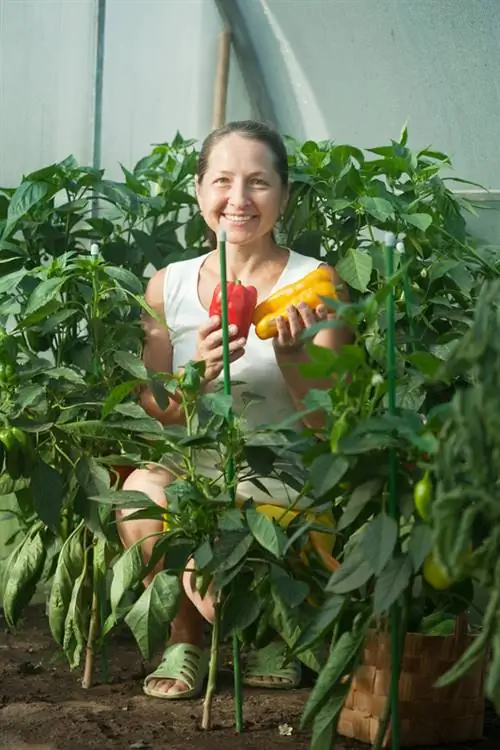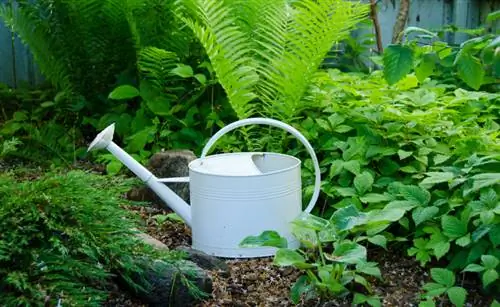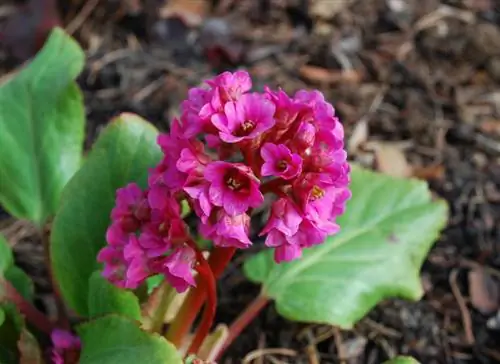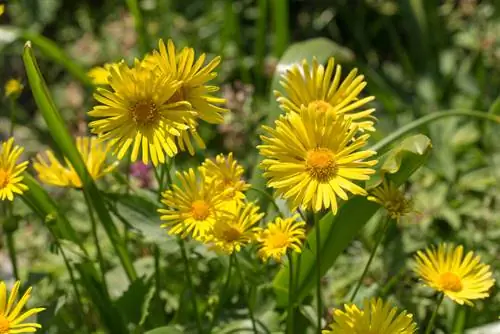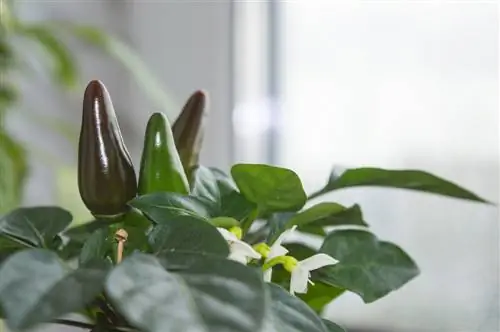- Author admin leonars@hobbygardeners.com.
- Public 2023-12-16 16:46.
- Last modified 2025-06-01 06:02.
For everyone who wants to enjoy fully ripe pods in abundance. Whether outdoors or in the greenhouse - peppers also want to be pampered. You should heed these tips and measures - pepper care made easy.
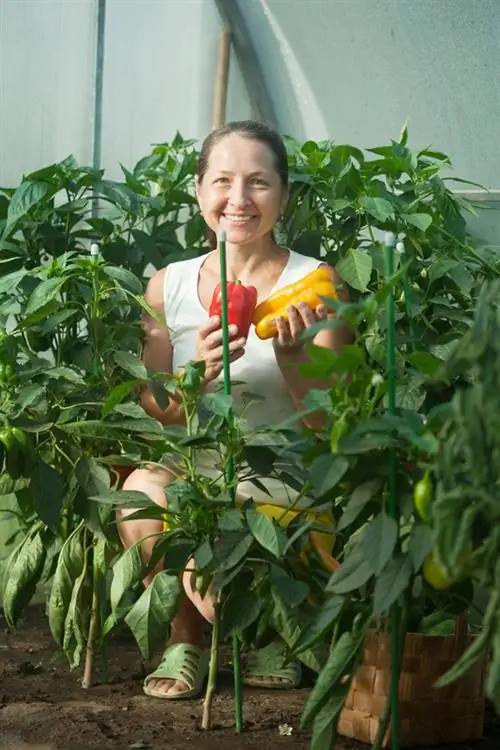
How do I care for peppers properly?
For successful pepper care, water 2-3 times a week, avoid waterlogging, repot in the second quarter of the waxing moon, choose an optimal location, fertilize regularly and provide frost protection in winter.
Growing and caring for peppers yourself is not difficult. In general, peppers are not demanding. But they require more time, light, warmth and sometimes slightly different care than other fruit vegetables such as tomatoes.
Watering more or less?
On the one hand, pepper plants are thirsty and want to be kept moist. On the other hand, you shouldn't water them too much and avoid waterlogging. That's why we recommend when it's dry:
- water 2 to 3 times a week
- Avoid waterlogging
- Only spray young plants
- just moisten in winter
When is the right time to repot?
For fruit plants such as peppers that develop above ground, you should use the second quarter of the waxing moon for repotting or grafting. As soon as the last frost has passed, you can repot the peppers in the bed or plant them on the balcony.
With at least two pairs of leaves and 10 centimeters in size, the young plants are suitable for outdoor use. Important! Even at night the temperature must not fall below 5° degrees. Before finally repotting, harden the pepper plants in the fresh air for a few hours every day. Wind and sun strengthen the plants and they form more stable new shoots. Check the location in good time before planting the peppers in the garden.
So that peppers grow, thrive and their fruits ripen, it is recommended to take the optimal planting distance into account when repotting. Peppers as fruit or vegetables prefer a slightly acidic to neutral, sandy, loose soil.
What to do against diseases and pests?
Typical pepper diseases often arise from incorrect care or unfavorable weather. An optimal location and proper care are the basis for he althy pepper plants. Shower off dangerous pepper pests such as spider mites with distilled water. Viruses, bacteria and fungi damage and destroy even the hottest chilies.
No matter whether mild or hot: peppers need food in the form of fertilizer
In order for peppers to fully develop their spicy aroma until harvest, they need sufficient nutrients. Either through regular fertilization or a single can of long-term fertilizer (€13.00 on Amazon).
This is how peppers get through the winter frost-free
Peppers love warmth and are not hardy. Due to the local climate, peppers can only overwinter frost-free.
Tips & Tricks
The special plus: All pepper varieties and types are not very demanding, so that hobby gardeners and anyone who wants to become one can enjoy quick success with peppers. Provided you use the recommended care measures correctly.

